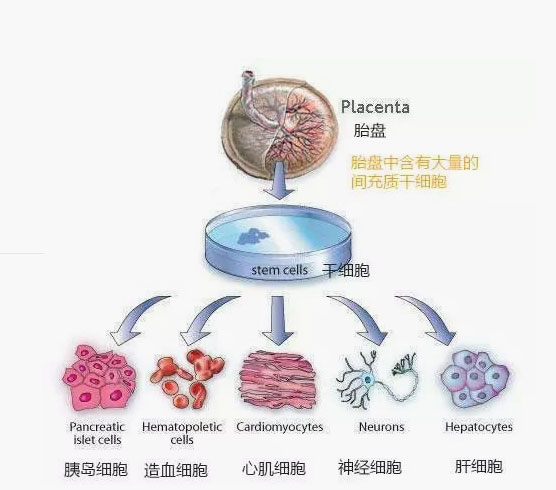What Are Placenta Mesenchymal Stem Cells?
The placenta is an organ that facilitates material exchange between the mother and fetus, formed by the combination of embryonic and maternal tissues. The placenta is composed of the amnion, chorion frondosum, and decidua basalis. In addition to its critical roles in fetal development and nutritional support, the placenta is also a stem cell reservoir!
Placenta mesenchymal stem cells, derived from neonatal placenta tissues, are a group of pluripotent stem cells that exhibit superior proliferative capability and differentiation potential compared to umbilical cord mesenchymal stem cells.
Uses of Placenta Mesenchymal Stem Cells
Scope of application:
Placenta mesenchymal stem cells have a wider range of applications than umbilical cord mesenchymal stem cells, including cardiovascular and cerebrovascular diseases, metabolic diseases, immune system diseases, degenerative diseases, neurological diseases, and gastrointestinal diseases.








